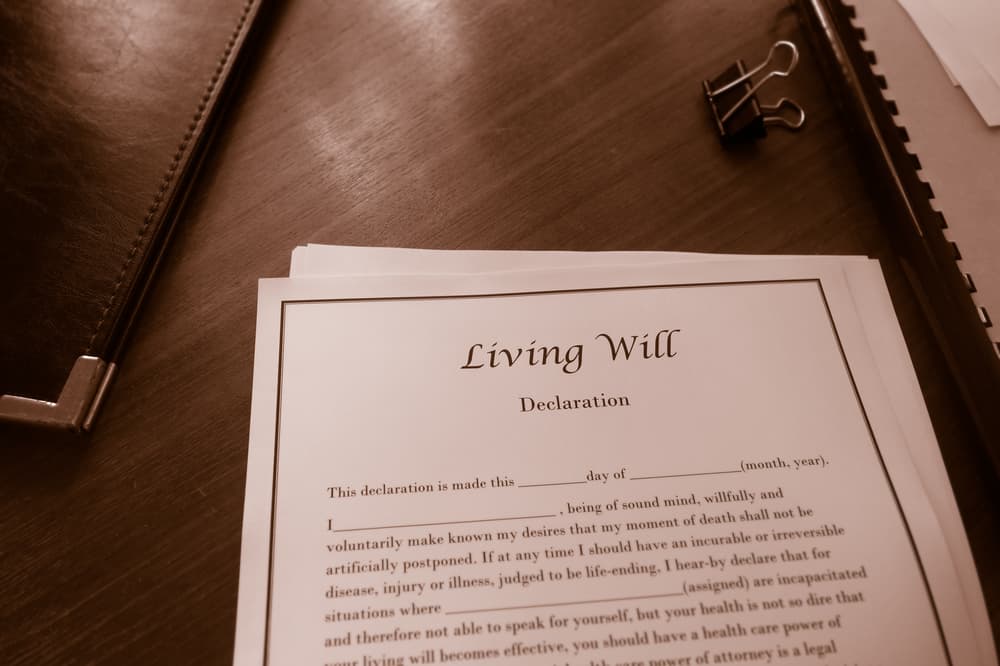The COVID-19 pandemic has forced many Americans to think more seriously about getting their affairs in order, including the healthcare documents needed in case they’re incapacitated and need someone else to make medical decisions. Even if you manage to avoid contracting Coronavirus, completing these documents now will give you and your loved ones peace of mind in the future and help caregivers or medical professionals follow your wishes.

Power of Attorney for Health Care
This is the form where you legally designate someone to make healthcare decisions for you if needed. New York, Massachusetts, and New Jersey call this person a healthcare proxy. Many other states call this person a healthcare agent. Generally, you can designate an alternate proxy in case your primary proxy isn’t available, but you’re not required to do so.
The requirements for a valid power of attorney document vary by state. For instance, in Texas, you must sign it and have your signature acknowledged by a notary public or sign it in the presence of two competent adult witnesses. Your doctor or the person you choose as your agent cannot also witness you signing.
The power of attorney form is especially important if you are not married, because the state will assign someone if you have not chosen an agent to speak for you. This could be your spouse if you’re married, your adult children, or your parents if they’re available. If you want to someone who’s not your spouse or a blood relative to speak for you, designate them via power of attorney.
Talk to your proxy or agent about your wishes before there’s an emergency requiring them to act. That way there are no surprises and they can act with confidence already knowing your wishes. If you’re comfortable talking to the person about end-of-life issues, the National Institute on Aging suggests making a video of yourself discussing your wishes and sharing it with them so they’ll can refer back to it as needed.

Living Will
Some states call this an advance health care directive, while others use that term to mean the combination of a power of attorney and living will. Whatever the name, this document describes your end-of-life healthcare wishes.
Even if you’ve shared these wishes with your proxy, it’s still helpful to put them in writing. For instance, if you were unlikely to recover from a serious medical condition, would you want a feeding tube or not? What about CPR or a ventilator? Many of these decisions come down to whether you’d want to prolong your life or preserve comfort and quality of life in your final days.
Another question on many of these forms: do you want your organs donated?
A living will is different from a Do Not Resuscitate (DNR) order or Do Not Intubate (DNT) order. A DNR order tells medical staff not to perform CPR if your heart stops beating. While it can help a young, otherwise healthy person resume a normal heartbeat, the force of CPR on the chest can break ribs or collapse lungs. It may not help an older adult who is already frail or has multiple illnesses, according to the National Institute on Aging. Some people specifically sign a DNR to avoid this.
A DNI order instructs staff in a nursing facility or hospital not to put you on a ventilator to assist with breathing. DNR and DNT orders are generally used by people who have existing medical conditions and are concerned that medical personnel may decide to use CPR or a ventilator. Otherwise, you likely don’t need a specific order unless you’re strongly opposed to these medical measures and want to cover all your bases.
The living will and power of attorney forms vary by state, so AARP has a page where you can download your state’s form(s).
Some states combine the power of attorney and living will into one document, while others use separate forms and have variations for these names. For instance, in Connecticut, if you leave health care instructions and name a health care agent it’s combined into one form called Health Care Instructions and Appointment of Health Care Representative. In Illinois, that combined form is called Durable Power of Attorney for Health
Care.

After You’ve Signed these Forms
Make copies of your living will and give it to your proxy and alternate proxies. Make sure close family members know where to find this document. Keep track of who has this document because you may need to update it in the future.
You may also want to carry a wallet card, like this one from the American Hospital Association. Any time you have a major life event — a wedding, a divorce, an out-of-state move, a diagnosis with a serious medical condition — revisit these documents and see if your wishes have changed. You probably don’t want your ex-spouse making medical decisions for you, so update as often as needed and notify those who have the older forms.
Nobody wants to think about suffering a catastrophic healthcare event, but planning ahead can alleviate confusion and ensure your end-of-life wishes are carried out.
More Living on the Cheap articles:
- Mental health resources to help you cope
- How to find the right health insurance
- Decoding the alphabet soup of health care
- Health saving accounts
- 12 ways to save money on health care

